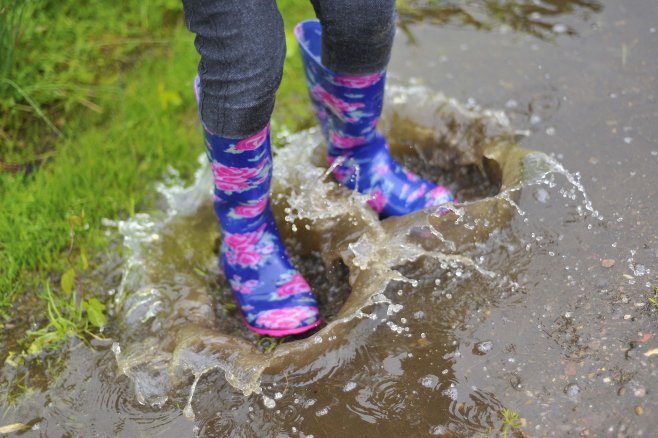Just one in five UK children ‘connected to nature’, study finds

For the first time ever, a study to determine how connected UK children are to nature has been carried out.
A three-year research project, undertaken by the RSPB, found that only 21% of children in the UK have a level of connection to nature that can be considered ‘realistic and achievable’ for all children. The report’s findings will be released at an event at the Houses of Parliament tonight [16 October].
The report comes as a result of growing concerns over generations of children with little or no contact with the natural world and wildlife, which the RSPB believes is one of the biggest threats to UK nature.
The new study shows there are statistically significant differences between children’s connection to nature at a national level across the UK, as well as between boys and girls, and British urban and rural homes.
In May, 25 wildlife organisations, including the RSPB, released the groundbreaking State of Nature report, which revealed 60 per cent of the wildlife species studied have declined over recent decades. The charity believes that ensuring young people are connected to nature will mean they develop deeply-held feelings and attitudes towards wildlife and the world we all live in, and as a result will care enough to help save it in the future.
Dr Mike Clarke, RSPB Chief Executive, will address MPs at a reception tonight, where he will reveal the report’s findings and urge governments and local authorities to adopt this new approach. He will say: “This report is ground-breaking stuff. Millions of people are increasingly worried that today’s children have less contact with nature than ever before, but until now there has been no robust scientific attempt to measure and track connection to nature among children in the UK, which means the problem hasn’t been given the attention it deserves.
“Nature is in trouble, and children’s connection to nature is closely linked to this. The recent State of Nature report shows that nature in the UK is being lost at a dramatic rate. We can all take action to put nature back into childhood, to ensure young people have better lives and a better future.
“For the first time, we have created a baseline that we and others can use to measure just how connected to nature the UK’s children really are. By adopting this new approach, we can all monitor children’s connection and we are recommending that governments and local authorities take action to increase it through policy and practice decisions.”
Over the last decade, a large amount of research has been carried out into the diverse benefits for children of contact with nature and outdoor experiences. These benefits include positive impacts on education, physical health emotional wellbeing and personal and social skills.
Evidence about the impact of an inactive and indoors childhood has grown over the summer with the Chief Executive of the British Heart Foundation calling for a return to the ‘traditional outdoors childhood’.
The RSPB believes everyone, from governments to organisations and individuals, has a role to play in connecting children to nature, which is why it has signed up to The Wild Network. The Wild Network is a unique and pioneering collaboration between organisations with an aim to let kids get back their ‘wild time’ and reverse the trend of children losing touch with the natural world and playing outdoors.
The kind support of the Calouste Gulbenkian Foundation and the University of Essex made this research possible.
Andrew Barnett, Director of the Calouste Gulbenkian Foundation in the UK, says: ‘We are delighted to have supported this groundbreaking study. Robust evidence of children’s connection with nature will be a powerful lever for change.’
